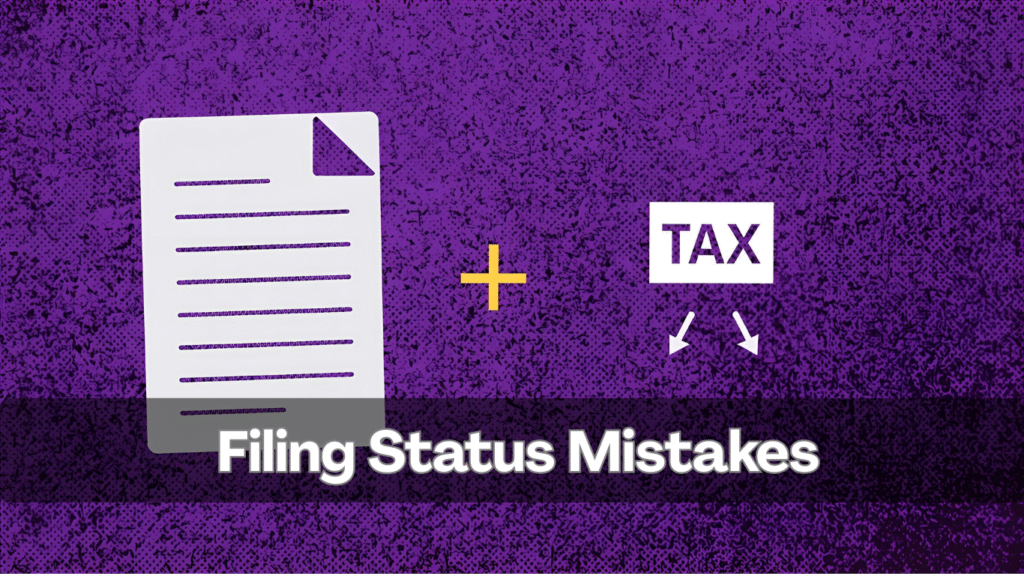Are you unwittingly giving away your hard-earned money to tax mistakes? Believe it or not, even the savviest among us can slip up and let these errors cost us dearly.
We all dread tax season, but mishandling your taxes can lead to a hefty financial hangover that’s hard to shake. Let’s dive into the surprising truths behind what you might be missing out on, and how you can keep those dollars in your pocket instead of handing them over to Uncle Sam.
Your taxes could be hiding valuable lessons in savings, or, perhaps worse, losing you money. This isn’t about exotic loopholes or sketchy deductions; it’s about simple, but easily overlooked, mistakes.
Imagine the peace of mind once you master these common pitfalls! With a few smart moves, you can transform your tax season from overly complicated to optimally beneficial.
Stick with me, and you’ll discover not just how to avoid these mistakes but how each fix can translate directly into more savings, less anxiety, and maybe that vacation fund you dreamed of.
Ready to change how your taxes treat you? Let’s go beyond the numbers and into the nitty-gritty details that everyone should know but often skips over. What’s one move you can make today to start saving on your tax bill?
1. Missing Out on Deductions
Every year, taxpayers overlook vast opportunities simply because they aren’t aware of all the deductions available. These aren’t hidden gems—but legitimate strategies that can significantly reduce your tax bill.
Think about this: How often have you brushed past a deduction because it seemed trivial, only to discover later it could have saved you hundreds, if not thousands?
Consider your everyday expenses—charitable contributions, educational expenses, even certain healthcare costs. They might be quietly slipping through the gaps in your tax returns.
For instance, did you know that educators can deduct classroom-related expenses, or that moving expenses might qualify if you relocated for a job? Grab the chance to reclaim what’s rightfully yours!
It’s a common myth that you have to itemize to make any real impact. But here’s the truth: Even the standard deduction has room for enhancement.
Keep those receipts and records organized throughout the year, or risk letting potential savings evaporate. Ask yourself, what personal or professional costs have you overlooked?
Make it a habit to review your expenses monthly—not just at tax time. This way, you won’t forget about the conference you attended or the new software you purchased for work. You’ll thank yourself when tax season rolls around, and everything’s tidy and ready to go.

2. Confusing Tax Credits and Deductions
Here’s the deal: Tax credits and deductions both save you money, but they function differently and often get mixed up. Remember, deductions reduce taxable income, while credits cut your tax bill directly.
It’s the difference between paying $1,000 less in taxable income versus seeing your tax due amount decrease by $1,000.
Tax credits can make a massive difference—especially refundable ones which could mean getting money back beyond just reducing the tax you owe to zero. Have you explored the Education Tax Credit or the Child Tax Credit? Missing out on credits can feel like leaving cash on the table.
Imagine filing your taxes, believing you’ve covered every angle, only to realize later that confusion over credits versus deductions meant you didn’t get the full return. How could that have boosted your bank account or funded something you’ve been saving for?
Take the time to identify which credits you qualify for and maximize them. It’s worth consulting with a tax professional or using certified software to ensure you’re claiming the right credits—and making the most out of your deductions.

3. Filing Status Mistakes
Your filing status is a big deal. It affects your tax rate, potential deductions, and even the credits you might qualify for. Imagine selecting Single when you qualify for Head of Household—it’s a simple click but can alter your refund outcomes.
Did you know there’s a potential misstep in not updating your marital status?
Especially after life changes like marrying, divorcing, or having a child, your status can and should change. Assessing this might seem nuanced but consider the rewards. Cracking this nut opens new avenues for tax savings.
Have you recently lost a spouse? You might qualify for a Special Filing Status that brings different tax benefits. These financial opportunities are as critical as the life events that make you eligible for them.
Don’t let misclassified status be the reason you overpay; keep up with your life and benefits.
Understand the implications of your choice and double-check before filing. It’s part of crafting an intelligent, comprehensive tax strategy that works for you each year, saving you from paying more and getting less back.
4. Overlooking Earned Income Tax Credit
Take a second to consider: Are you or someone you know eligible for the Earned Income Tax Credit (EITC)? It’s a significant credit for moderate and low-income earners, yet it’s one of the most unclaimed credits each year.
This non-claim can stem from misunderstanding who qualifies. Even if you’ve been unemployed part of the year or have seasonal work, EITC might be available. Having children also boosts this credit’s potential, easing the financial burden.
Imagine qualifying but omitting this credit—nearly $6,000 in tax credits could have changed your financial year dramatically. Let those dollars work for you while reducing financial stress and opening up well-deserved opportunities.
A quick check on eligibility—the IRS has online tools that make this user-friendly and accessible. Consider it like finding a bonus cash stash; make sure to investigate what you might be entitled to, potentially lifting those zeros from your balance sheet.
5. Underreporting Income
We get it—balancing income from multiple streams means meticulous record-keeping. But it’s not just about double-checking W-2s or 1099s.
If you’re side hustling, earning rental income, or receiving payments in non-traditional ways, underreporting leaves a mark on your integrity and finances. The IRS doesn’t miss a beat.
Accurate reporting avoids later amendments, audits, and penalties. You might think small income amounts don’t matter, but honesty pays off, especially for freelancers or gig economy workers.
Your ticket to peace with the IRS? Accountability and diligence. Invest in accounting tools or apps that track everything dollar-for-dollar, maintaining consistency and credibility.
Amidst managing multiple income streams, remember the potential of claiming valid related deductions. Combining honest reporting with strategic claims keeps everything clean and beneficial. Clear transparency in your earnings today can save financial strain in the future.


